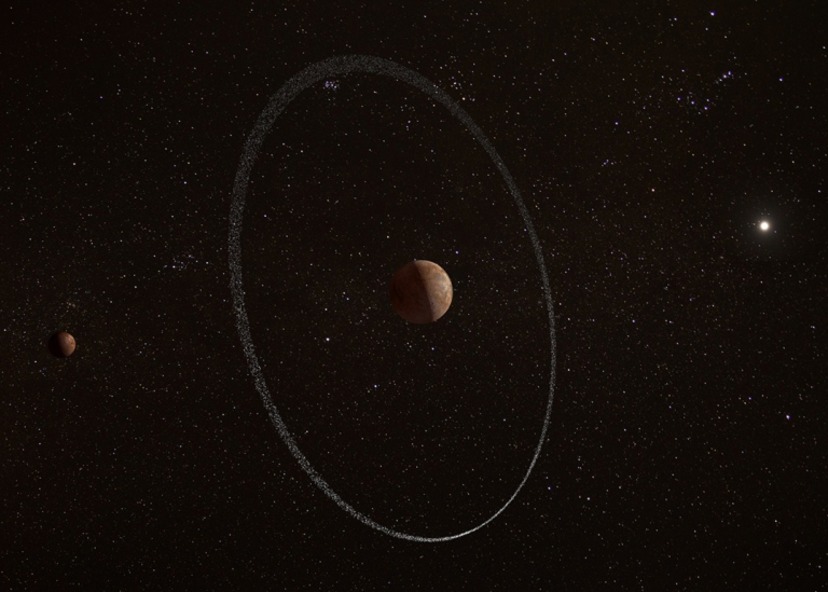
A large ring has been discovered around the dwarf planet Quaoar using the CHEOPS space telescope. The ring is described as a mystery by scientists.
Rings are found around all of the solar system’s giant planets, with Saturn’s ring system being the most conspicuous.
Around small planets, however, they are rarer, where we only know of two cases previously. What these rings have in common is that they are within the so-called Roche radius, which is the distance from the celestial body where a loosely assembled moon manages to hold together on the outside, but where it is torn apart by gravity on the inside. So the idea is that rings arise because the material that is inside the Roche radius cannot accumulate to form a moon.
This view is now being challenged by the discovery of a ring of more than double the Roche radius around Quaoar, a dwarf planet moving in the outer Solar System beyond the orbit of Neptune.
It is a mystery how the material in the ring can fail to collect itself into a moon, says Alexis Brandeker, one of three SU researchers who are co-authors of the study, which is published in Nature.
A possible clue is that the three rings discovered so far around minor planets appear to be of a particular size unrelated to the Roche radius: the rings are all so large that its particles move one revolution around the celestial body in almost the same time as the minor planet rotates three spin around its own shoulder. Perhaps this 1:3 resonance prevents the ring particles from coalescing into a moon.
Quaoar is known as one of the dwarf planets that caused Pluto to lose its planet status. When increasingly careful observations at the beginning of the 21st century revealed a family of at least ten new minor planets close to Pluto in size, the International Astronomical Union chose to change the classification of Pluto to a dwarf planet.
RELATED ARTICLES
- WEF Scientists Warn Next Pandemic Will 'Kill Billions'
- Spike Protein Makes Women 'Infertile', Scientists Warn
- Scientists Have Recreated World's Deadliest Flu Virus
- More than 70% of Coronavirus Deaths in Italy are Men, Scientists Baffled
- Scientists Discover HIV-Like 'Mutation' Which Makes Coronavirus Extremely Infectious











